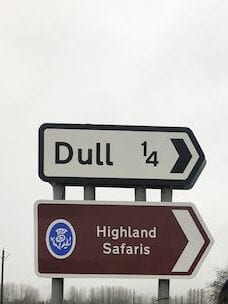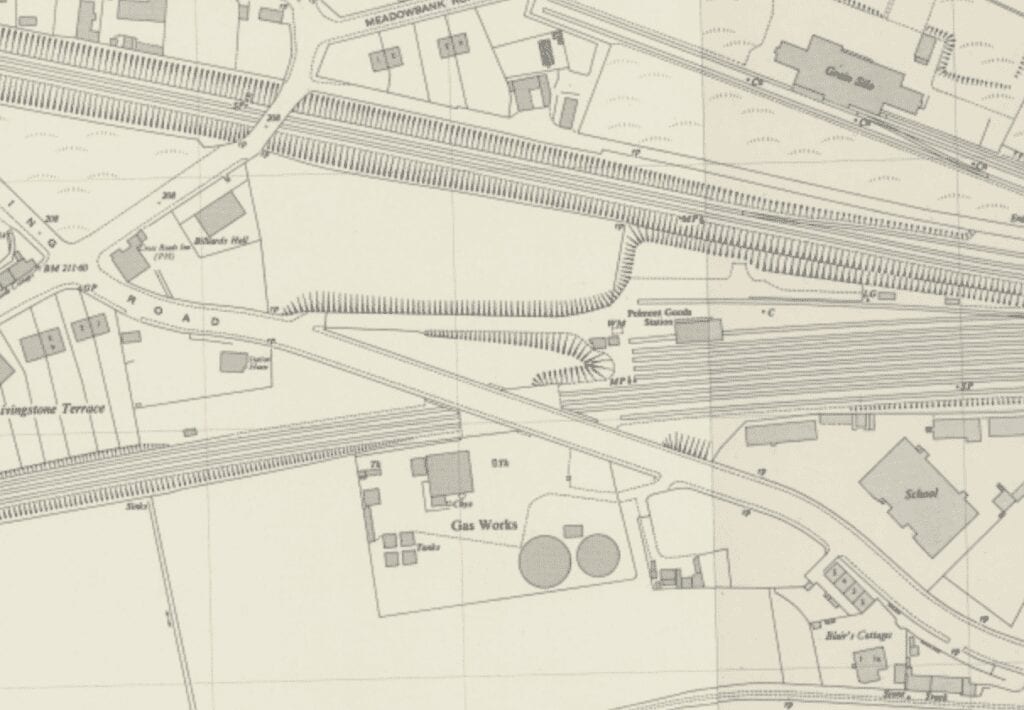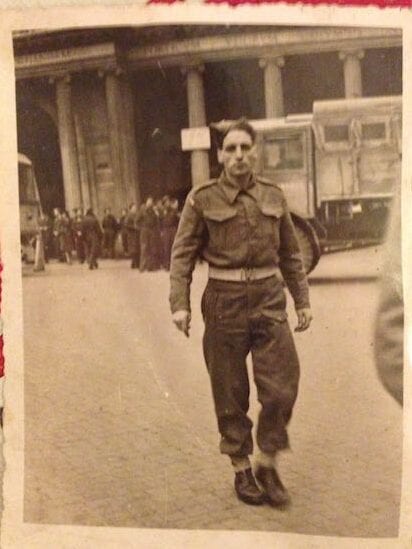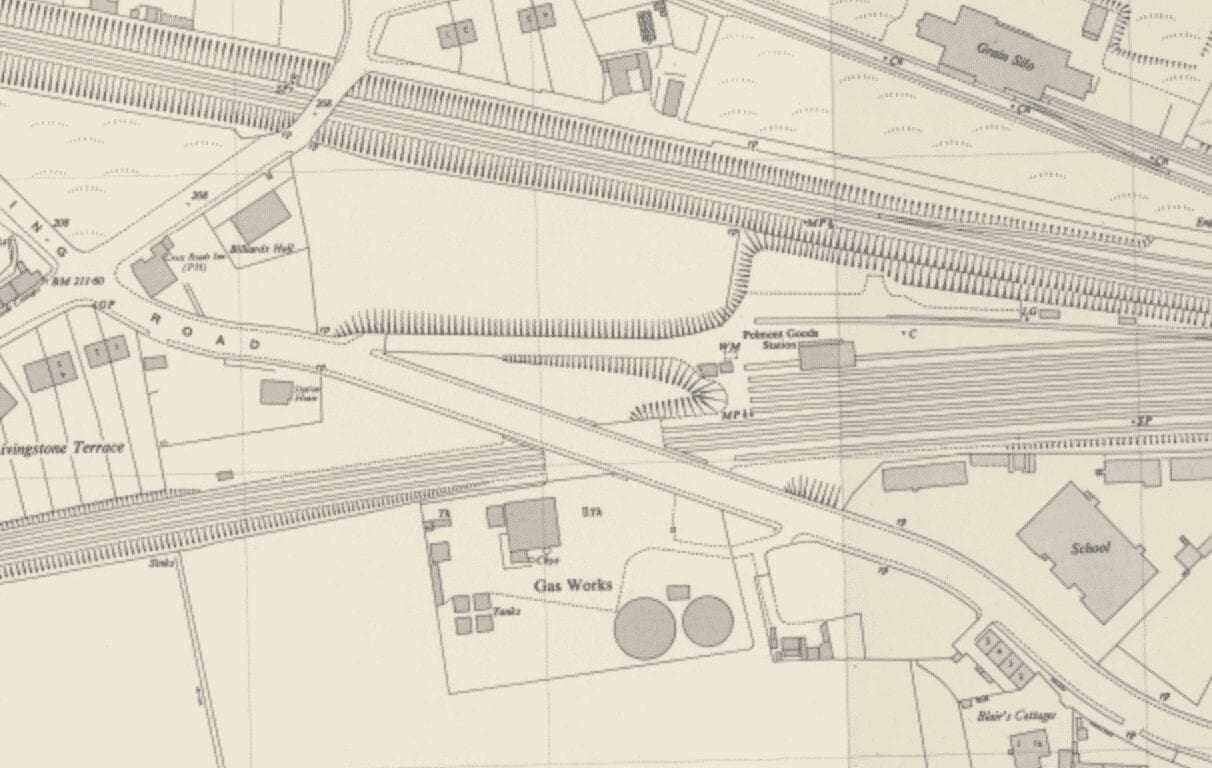This week, I developed a new obsession with researching my family tree. It’s something that my grandmother was into, and, to be honest, I had no interest in it until lately. Even more surprisingly, it’s given me some hugely valuable insights into building wealth and why we are living in a great time to do this. I’ll take you through some of the more exciting parts of the family tree and then my conclusions on the mistakes made and opportunities taken by my ancestors.
To start, I duly signed up to Ancestry.co.uk and put in a few details. The AI jolted into action and revealed that my Aunt had already been on the site and added my mother’s side of the family in great detail, including uploading old photos of the family. Looking at all these people I’d never met, but to whom I am directly related, was fascinating.
To see somebody’s entire life on one screen and imagining what prompted house moves or what they did for a living boggled the mind.
My father’s branch
However, no one had ever attempted my father’s side. It was rather tricky as I did not know my deceased grandmother or grandfather’s birthdate or death date. Luckily you can just put in a rough date, and the AI does the rest. I also had to buy access to a few birth and death certificates to get things going.
I managed to trace my Dads’ side back to about 1850 without much trouble. A few fascinating characters emerged. One was John. He appeared to have been born in 1843 in Bermuda of all places. I presume it was during a military posting with his father being in the 7th Bombardier Royal Engineers.
Surprising links to my life
I found a marriage certificate that said he was married in a church about 2 miles from where I grew up, which is because his wife, Margaret, lived in the same small village in Scotland where I grew up. I found that interesting as we as a family moved there from Glasgow in the 1990s, and it’s a tiny village! I’d always thought I didn’t have any roots in that area, and it turns out I very much do! I will have to trace that line to the modern day to see I know any distant relatives.
It seems John worked as a Coachman, and although he lived in Edinburgh, had somehow had a son in Arbroath (a town on the east coast of Scotland where my sister lives and works as a bus driver!) out of wedlock. The scandal! One can only imagine how they met at ages 19 and 20 (maybe in one of the pubs i myself went to at that age!). The wedding was three months after the birth…
It then seems he and his wife, Margaret, moved to the Scottish Borders, where he worked as a gamekeeper for around ten years. Interestingly, Margaret’s father was a gamekeeper, so I’d imagine that some sort of connection got him the job.
Weirdly, when John was in his mid-thirties, he and the whole family moved to a very insalubrious area of Glasgow: Hutcheson Town, which was a slum. At that time, John’s occupation was listed as Railway Guard and, latterly, a dairyman.
Sadly, Mary died in 1882, aged 48, and it seems that John remarried in 1884. However, John always remained in Glasgow (or nearby) in the same area for the rest of his life. He died in 1895, aged 52, from hepatitis. My great grandfather was his son and spent most of his life in nearby Mount Florida in Glasgow. Again, it was a stone’s throw from where I was born and spent the first seven years of my life.
Fowler the journalist
My great-grandfather was named Fowler and started working as a milkman, who then progressed to a “Manager” and a ‘Foreman Publister”. I have no clue what a publister is, but I suspect it was meant to say “Publisher”, and the AI couldn’t read the handwritten records. I now really want to see if he wrote anything that is still in existence. His death certificate says he was a journalist. His wife Georgina was an artist and apparently we have some of her work at my aunt’s house.
As for my overall origins, my whole family for at least four generations was from Scotland. I was hoping for something more interesting, but I suppose that does make me solidly Scottish. I did trace one distant branch back to the village of Dull, in Perthshire, where it seems several generations lived from 1660 onwards. I have been to that village, and it lives up to its name- there isn’t a great deal going on!

The wealthy branch
On my paternal grandmothers’ side, things looked a little better. Her father, it turns out, was the proprietor of a Gas Works in the Central Belt of Scotland. Records show they had a large house and would have had a comfortable life. The family would holiday in Lucerne in Switzerland, and had also named their house “Lucerne”. I knew something of this from my Dad but had never looked into it. It seems my grandmother’s father and his father were both listed as “Gas Managers”. However, it seems the elder started in Lanarkshire as an iron ore miner aged 14, by age 24 he was the “Gas manager” and then somehow moved to Newtonards in Northern Ireland for several years, before returning to Dunfermline for a time where my great grandfather Robert went to school.
Robert, it seemed, married at 30 years old to a girl, Margaret, a dressmaker from Dunfermline. I’ve got a bit of a gap in the records here, but it seems that they moved to near Falkirk at some point.
It seems Robert had done well for himself. The valuation records show he was the owner of the Gas Works. I traced where the site was, and it’s now a Tesco!

Some money may have remained in the family because I know when my grandmother died, it was discovered (to everyone’s surprise given that she would not spend any money) that she had around £200k in shares. That was in addition to her paid off seven-bedroom house. Don’t get excited, its a nice house, but its in a very cheap part of Scotland! She was a nurse, and my grandfather was a chemist for ICI, and I think they were an excellent example of frugality. I, therefore, believe that most of the money accumulated was from saving and investing.
Sadly, my Dad’s sisters were hopeless with money. This was mainly due to them not doing particularly well paid occupations. My aunts were both artistic types who never married and partied hard. They live in the family home and are great fun over a bottle of wine, but they are broke. That is not a criticism, they are very cool.
Mum’s branch – the heroic middle class
On my mother’s side, the family seem to have lived in Glasgow for generations. I guess they were a typical middle-class family. I know my granddad, coincidentally, worked for the gas board of Glasgow. During the war, he had been in the RAF but decided to join the Grenadier Guards (because being in the RAF was too dull and he wanted a part of the action) and subsequently was part of the invasion of Italy in World War II. He fought at the battle of Monte Cassino, one of the most vicious fighting in the war. Mum said he would never talk about this.

What does all this mean?
From my brief foray into my family history and having reviewed dozens of lives in a few hours, several things struck me.
Firstly, the range of occupations that people undertook during their lives. In the older times, it seems that careers would change regularly (at least for those in my part of the family in a poor area of Glasgow). As society changed, jobs were lost, and probably as a result of the economic climate. I have no idea why John lost his career as a gamekeeper, but it had a devastating effect on his family as they ended up in a slum in Glasgow. It seems he never recovered from that financially.
Secondly, that the only wealthy branch of the family appears to be self-made, my great-great-grandfather started as a mining engineer aged 14. Eventually, he became the owner of a coal gas works with his son (my great grandfather).
Lastly, the only wealthy people (not rich, might I add!) in my family owned income-producing assets, whether shares, stocks or gas works.
So what does it mean for today?
It seems that we are now living in a golden time due to how easy it is to buy assets such as stocks and shares. Old John would never have known how to buy stocks in the 1850s. It would have been a closed shop, and in any event, he probably didn’t have much spare money with such a large family to feed.
My grandfather Joe, who worked at the gas board for 40 years, had a stable life, which I expect that desire resulted from the traumas he suffered during the war. However, I know he never owned property. Sadly, he died at age 58, so he never enjoyed that long worked for retirement (also, smoking 40 a day for 40 years probably didn’t help). He did get a handsome pension that my Gran used to travel the world. I feel like he missed an opportunity there, and my Gran always said they had thought about buying a house but never saw the point. However, those final salary pensions are no more, and that was a golden era for big company employment.
By contrast, my Gran’s sister, who is still alive today, emigrated from Scotland, first to South Africa (but left after 18 months, as she was shocked by the Apartheid system) and then moved to Sydney, Australia. She told me that she was lucky, as having started as a receptionist at a stockbroking firm, she worked her way up to became the first female stockbroker on the Sydney stock exchange. We have no idea how wealthy she is, but I can tell you she and her husband drove a Honda Civic but always flew first class. I would call that living frugally and spending when its sensible to do so. I know she started with nothing but now must have a small fortune built through investments made from a well-paying job. Not having children helped.
Conclusion
This is the message from history: save as much as possible, buy income-producing assets, buy your own home, and create generational wealth. Also, life is short, and bad things happen; people die earlier than planned. Make time to do something you enjoy. A job is just a job.
You might die young, but you might live to your nineties. Either way, having a good base of wealth will help whatever life throws your way.
I’d read 85% of millionaires in the USA are self-made, and if my family are anything to go by, the wealthier people in the family were also self-made. The maths says it’s possible, so take a few calculated risks, and keep saving and investing.




One thought on “Family tree research: What it has taught me about wealth.”